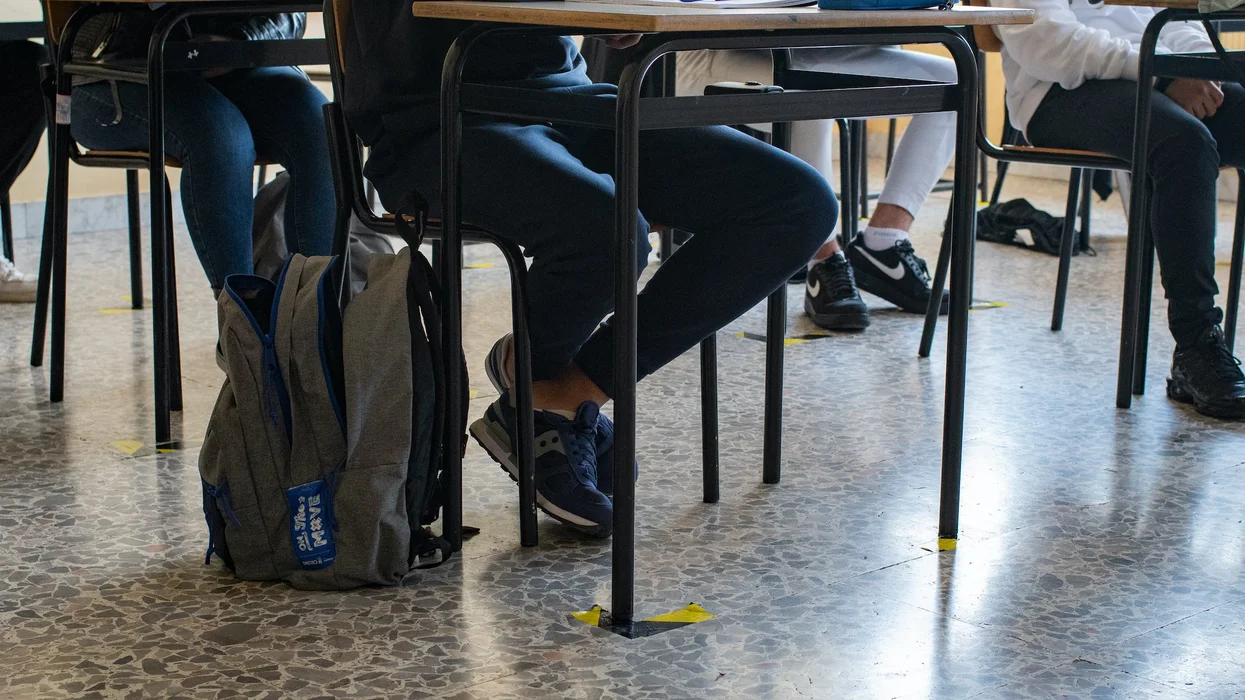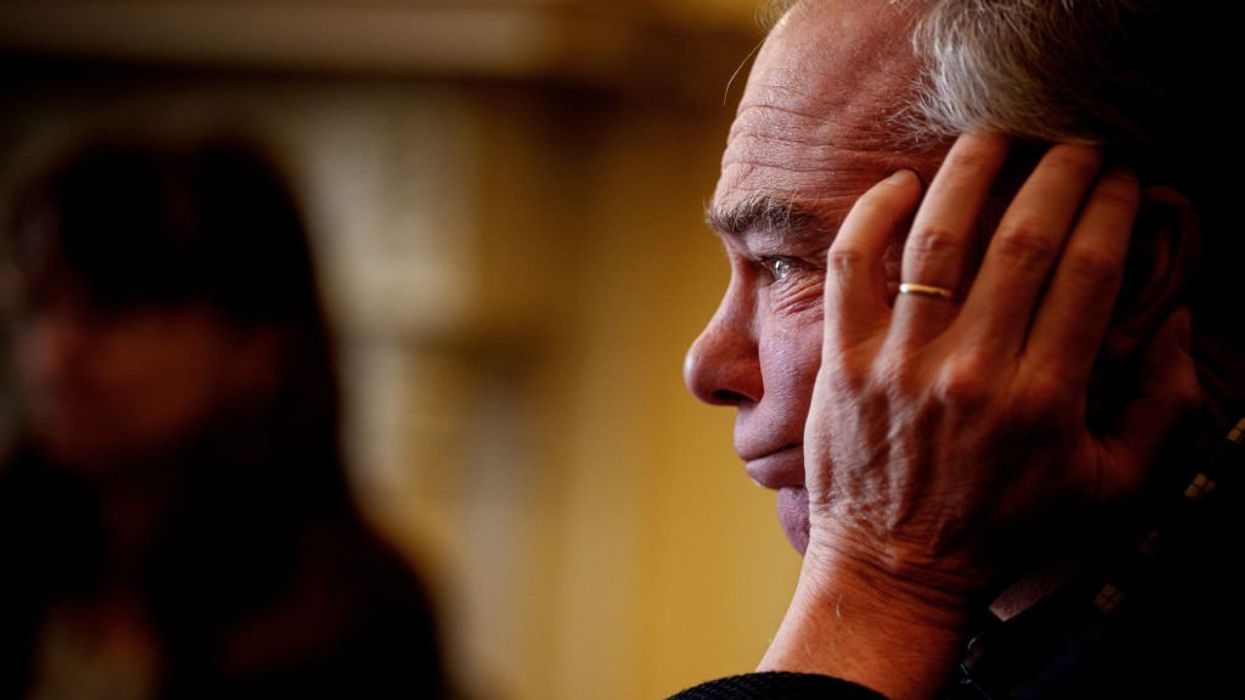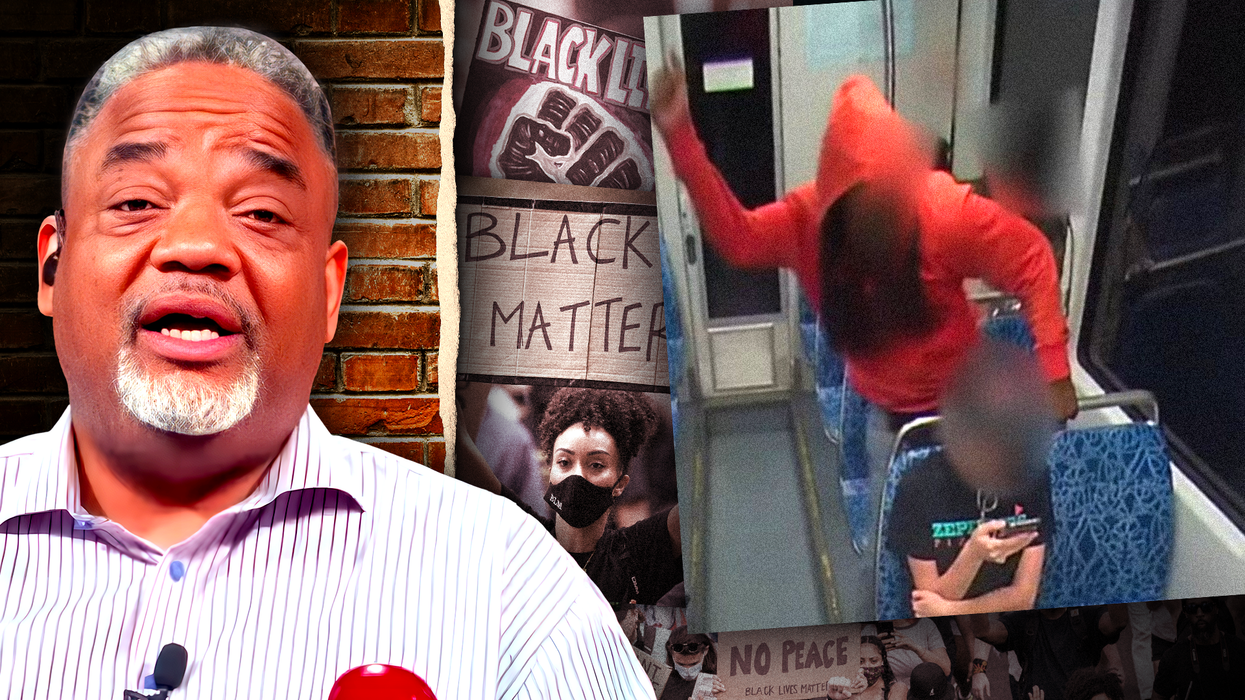© 2025 Blaze Media LLC. All rights reserved.
Citizens Sue to Stop 'Lord's Prayer' Recitation at Delaware County Council Meetings
January 18, 2012
"...there is no reference to Jesus or Allah."
 Intense debate over the presence of prayers in the public square -- especially Christian ones -- is nothing new. In recent weeks, we've covered a teen atheist's successful campaign to ban a prayer mural in a Rhode Island public high school. Now, there's another battle brewing in Wilmington, Delaware, over recitation of the Lord's Prayer at public meetings.
Intense debate over the presence of prayers in the public square -- especially Christian ones -- is nothing new. In recent weeks, we've covered a teen atheist's successful campaign to ban a prayer mural in a Rhode Island public high school. Now, there's another battle brewing in Wilmington, Delaware, over recitation of the Lord's Prayer at public meetings.
On Wednesday, a hearing was held in a lawsuit that aims to stop the Sussex County Council from reciting the well-known prayer before each meeting. Interestingly, much of the argument is centered around whether or not the prayer is explicitly Christian. The county's attorney, J. Scott Shannon, argues that the prayer is generic and, thus, doesn't favor any particular faith. The plaintiffs, of course, disagree.
The council has been reciting the Lord's Prayer at the beginning of each Tuesday morning meeting for the past 41 years. The action, according to The News Journal, has been taken under both Democratic and Republican majorities.
But four residents are asking U.S. District Court Judge Leonard P. Stark to rule that this action violates the establishment clause of the First Amendment. Americans United for Separation of Church and State (AUSCS), a church-state separatist group, is defending the four citizens who would like to see the recitation ruled unconstitutional.
"It affiliates the county government with one single faith — Christianity — and sends a message to the county residents that their county government favors one religion," said Alex Luchenitser, an attorney for AUSCS. "The way this prayer is recited has many hallmarks of a religious exercise."
 The county, though, disagrees and is asking the judge to throw the case out. Attorneys for the council believe that a 1983 ruling -- March v. Chambers -- provides a foundation that defend's the use of the Lord's Prayer. In the ruling, it was found that a government-funded chaplain in Nebraska was constitutionally able to say a prayer before legislative sessions.
The county, though, disagrees and is asking the judge to throw the case out. Attorneys for the council believe that a 1983 ruling -- March v. Chambers -- provides a foundation that defend's the use of the Lord's Prayer. In the ruling, it was found that a government-funded chaplain in Nebraska was constitutionally able to say a prayer before legislative sessions.
"It is not required that a prayer be inoffensive to all or that it be all-inclusive," Shannon argued, going on to claim that Jesus Christ -- a Jew -- had originally uttered the prayer. "(Jesus) was not offering a Christian prayer in the Christian tradition because no Christian tradition existed," Shannon continues.
The prayer, as you be know, can be found in Matthew 6:9-13:
“‘Our Father in heaven,hallowed be your name,
10 your kingdom come,
your will be done,
on earth as it is in heaven.
11 Give us today our daily bread.
12 And forgive us our debts,
as we also have forgiven our debtors.
13 And lead us not into temptation,
but deliver us from the evil one.’
"I'm afraid you all might have brought me a difficult case because there is no reference to Jesus or Allah" [in the Lord's prayer] Stark said.
There's no telling what the timeframe on the case will be, as the prayer doesn't mention, explicitly, Jesus or a specific concept of God. That being said, it did originate, as Luchenitser noted, in the Bible.
(H/T: The News Journal via USA Today)
Want to leave a tip?
We answer to you. Help keep our content free of advertisers and big tech censorship by leaving a tip today.
Want to join the conversation?
Already a subscriber?
Billy Hallowell is a digital TV host and interviewer for Faithwire and CBN News and the co-host of CBN’s "Quick Start Podcast."
Billy Hallowell
Billy Hallowell is a digital TV host and interviewer for Faithwire and CBN News and the co-host of CBN’s "Quick Start Podcast."
more stories
Sign up for the Blaze newsletter
By signing up, you agree to our Privacy Policy and Terms of Use, and agree to receive content that may sometimes include advertisements. You may opt out at any time.
Related Content
© 2025 Blaze Media LLC. All rights reserved.
Get the stories that matter most delivered directly to your inbox.
By signing up, you agree to our Privacy Policy and Terms of Use, and agree to receive content that may sometimes include advertisements. You may opt out at any time.





